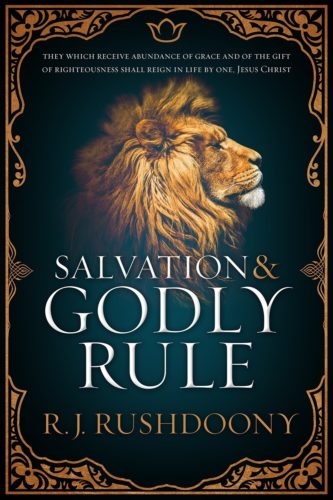Salvation and Godly Rule

Man was called to dominion (Gen. 1:26-28), and to establish his reign over the world under God. By his fall, man introduced the reign of death into the world, and as long as he remains in the Fall, sin reigns in him unto death, both in time and eternity. Christ, however, by His grace and the gift of righteousness, enables man to reign in this world, and to reign through righteousness in time and eternity.
Salvation means reigning. As formerly rebellious slaves, we are now established in kingship, and described as "more than conquerors" (Rom. 8:37) in Christ, because we are also kings.
The full meaning of salvation cannot be understood apart from the fact of reigning. The multiple use of the word "reign" in Romans makes clear the centrality of reigning in the doctrine of redemption. To defer this fact to another world is a false separation into two alien realms - one (the material) surrendered to one god, and the other (spiritual) reserved for the other god. Neither is Biblical.
St. Paul is emphatic: we "reign in life." The Biblical doctrine of salvation requires it.
Read inside...
Topics: Dominion